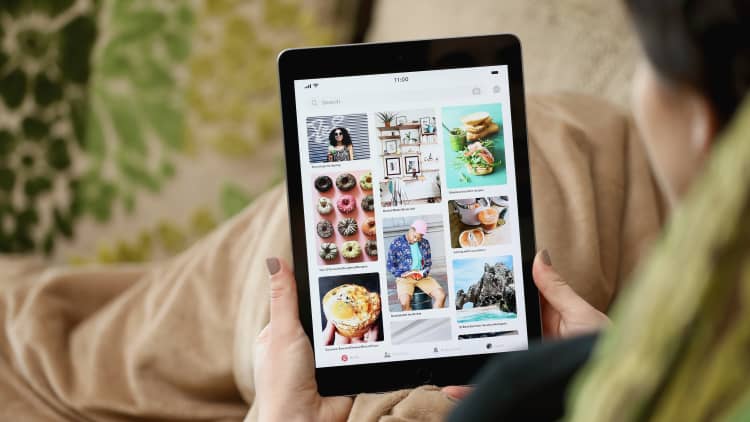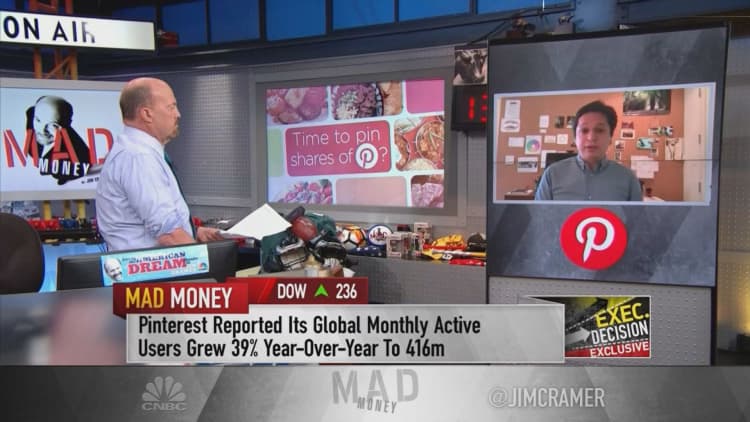Pinterest announced Thursday it will no longer show ads to users when they search for common elections-related terms like candidate names or "polling place."
The company also announced Thursday it will give employees eight hours of paid time off, the equivalent of a work day, for "civic engagement," which can be used to vote, serve as a poll worker or other forms of civic or community engagement, it said. Employees can use the paid time off anytime, not limited to Election Day, the company said. The company said the benefit will apply to all of its more than 2,200 employees. Apple, Twitter, Old Navy and a slew of other companies have recently announced similar benefits.
San Francisco-headquartered Pinterest, which banned political advertising itself back in 2018, announced a string of updates Thursday as the presidential election approaches. It said the updates attempt to direct its users toward resources that are reliable and to ensure advertisers don't risk showing up adjacent to political content. Pinterest said it has been implementing the changes to prevent ads from showing up on election-related terms over the last few weeks.
The announcements come the same day that Facebook announced it would not allow new political advertising to run the week leading up to the U.S. election, though will allow political ads submitted up until that time to continue running. The move has been criticized by some that say it isn't a strong enough move to combat the kind of misinformation and conspiracy theories that have become rampant as the election draws closer.
Typically, Pinterest users will view sponsored products and posts in their feeds when they search for a certain term. For instance, a search for "shoes" might yield posts sponsored by Uggs or Nike. But when users search for "Trump," "Biden," "voting" or other related terms, they will not see sponsored posts where they may have previously. When a user searches for a political candidate, the resulting "Pins," or posts, range from memes, quotes and products related to the candidate. For instance, you might see a "Trump 2020" face mask when searching for "Trump."
In addition to removing ads from election-related terms, Pinterest said when users search for terms like "vote by mail" or "voting 2020," the results will show an advisory encouraging them to visit vote.org for information on the 2020 presidential election. It will not recommend election-related content in various areas.

"As we get closer to Election Day, we know that public discourse will grow louder. We want Pinterest to remain a place for inspiration and positivity," the company said in a blog post Thursday. "That's why, as we near November, we'll limit recommendations about election-related content (like election memes or slogans) in places like the home feed and notifications. We'll also turn off search autocomplete and search guides for specific election-related terms."
The company noted it doesn't make exceptions for public figures in its rules, and said if a user publishes content that violates its policies on misinformation or hate speech, it will take action regardless of whether it comes from a public figure.
Pinterest is also updating its "Civic Misinformation Policy," which it introduced in January. That policy bans false or misleading content that impedes actions like registering to vote, voting or being counted in a census, along with similar content with wrong or misleading information about dates, times, locations and procedures for voting and other actions.



